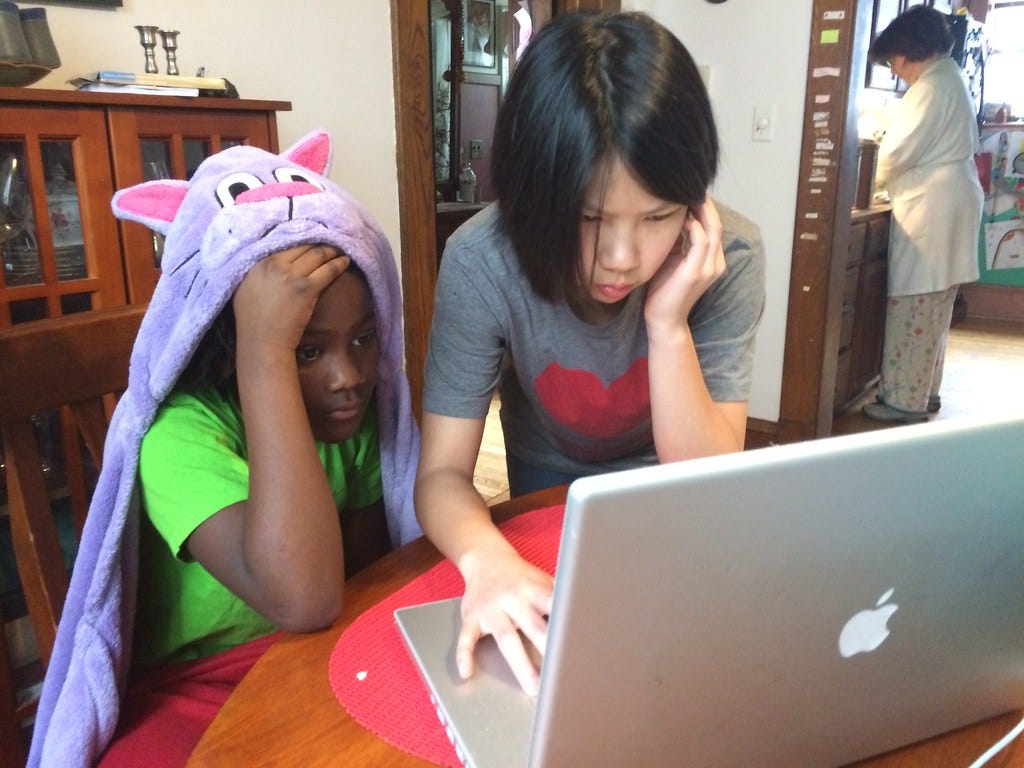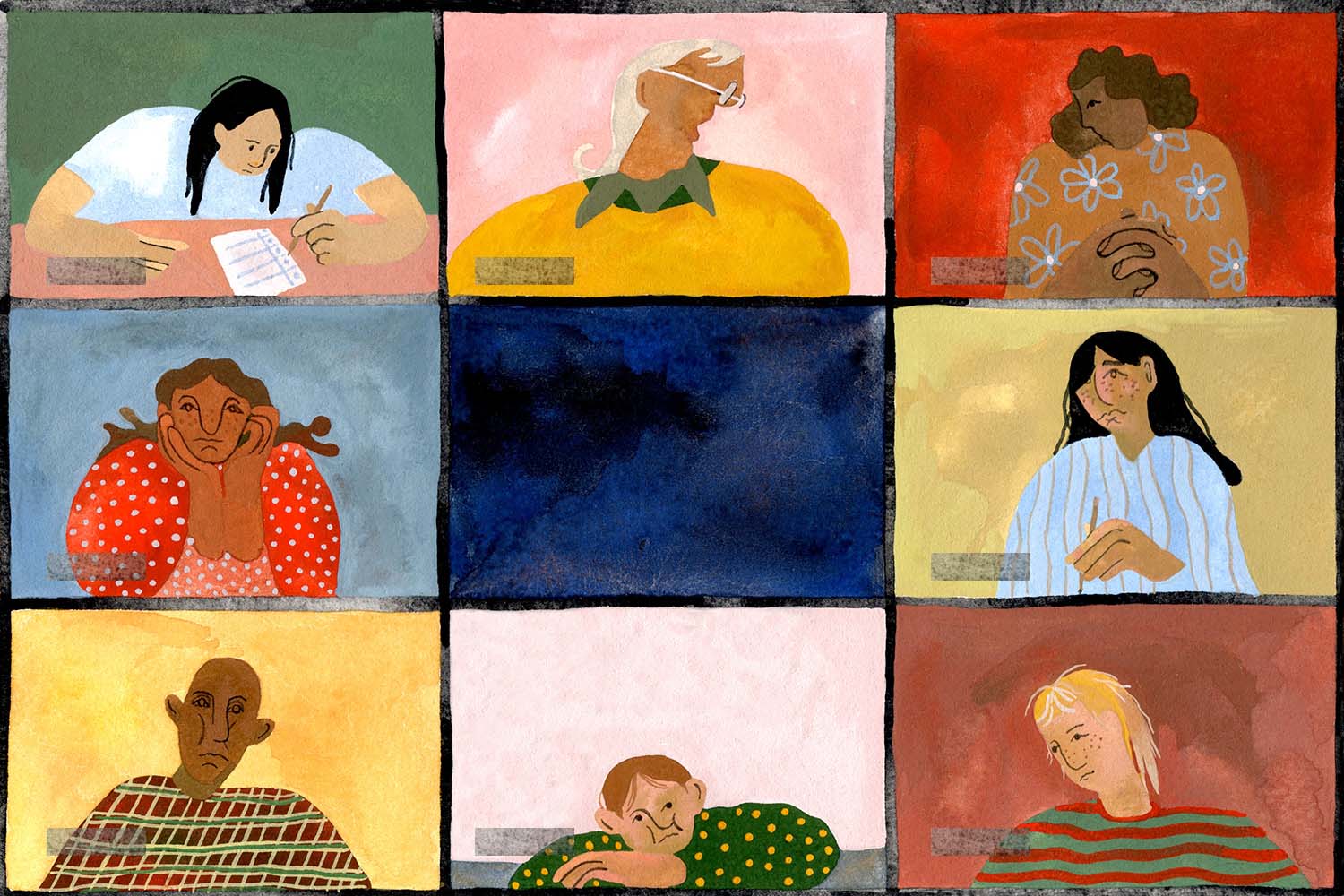In the News
Op Ed: Governments must do more to provide critical Internet access to low income households
There was a time when Internet access was a luxury – a ‘nice to have,’ -- but that time has long since past. Now, with COVID-19, Internet access is an essential lifeline to health appointments, school, work, food and medicine deliveries, banking, government emergency funding – and so much more.
Every household needs Internet access.
With the novel coronavirus, not having Internet access can mean the difference between life and death. Having to leave the household for essential goods and services, instead of accessing them online from the safety of your home, can mean risking your safety and that of your loved ones.
Yet Internet access remains unaffordable for many Canadians.
National Observer: Pandemic-forced home-schooling widens the digital divide
 The broadband internet connection in Mikayla Burnett’s Scarborough home struggled to handle the extra load as soon as Ontario schools closed last month due to the COVID-19 pandemic.
The broadband internet connection in Mikayla Burnett’s Scarborough home struggled to handle the extra load as soon as Ontario schools closed last month due to the COVID-19 pandemic.
The 18-year-old high school student, her brother and two cousins who live with them all need to use it to keep up with their studies, but the increased demand has meant the service — which combined with a landline phone costs the family $150 a month — has slowed to a crawl.
“If I was sitting in my room, I couldn’t hand in assignments. It would be loading for 20 minutes — it would take forever to load a page,” she said.
“I had to use my own (mobile) data, which affected me later on because it ran out.”
Medium: In light of Covid-19, maybe it’s time we revisit the debate around the internet as a human right
 If there’s one thing this crisis has made abundantly clear, it’s this: the internet is no longer a luxury, it’s now a necessity. We’re turning to the internet in record numbers to work, teach our kids, and inform ourselves of the latest public health news. It’s also helped make this whole thing just a bit more bearable. Whether it’s catching up with our friends over Facetime or easing our mind with the latest Netflix sensation, the internet has helped us maintain our collective sanity.
If there’s one thing this crisis has made abundantly clear, it’s this: the internet is no longer a luxury, it’s now a necessity. We’re turning to the internet in record numbers to work, teach our kids, and inform ourselves of the latest public health news. It’s also helped make this whole thing just a bit more bearable. Whether it’s catching up with our friends over Facetime or easing our mind with the latest Netflix sensation, the internet has helped us maintain our collective sanity.
Unfortunately, for far too many Canadians, internet accessibility is still an issue. This is especially true for low-income Canadians and rural Canadians.
The Local: Monday in Lockdown, Without Wi‑Fi
 To access the Facebook mommy groups she uses to find support and resources for her two children, Tammara Tucker has to hop on Wi-Fi wherever she can get it. “I usually try to find spots around my building,” the 33-year-old mom says over the phone from her Long Branch apartment. “But we’re not supposed to be out doing that. It has been a month of complete uncertainty.”
To access the Facebook mommy groups she uses to find support and resources for her two children, Tammara Tucker has to hop on Wi-Fi wherever she can get it. “I usually try to find spots around my building,” the 33-year-old mom says over the phone from her Long Branch apartment. “But we’re not supposed to be out doing that. It has been a month of complete uncertainty.”
Tucker doesn’t have a data plan on her phone, which makes communicating difficult. “Most people don’t want to talk on the phone, they like to use Facebook Messenger,” she says. Prior to the provincial state of emergency, Tucker could access free Wi-Fi via her smartphone at the library or Tim Horton’s. As of Monday, the city had been shut down for a month, leaving Tucker and her kids—aged 13 and seven-months—without a reliable internet connection. “It’s shattering to realize you can’t provide in the way you used to,” she says. “There are so many resources that are online.”
Report: Internet is an Essential Service
The need for expanding the Federal Government’s Connecting Families to ALL low income people is greater than ever! Governments – federal and provincial – have called for social/physical distancing during the ongoing health emergency due to COVID-19.
However, staying at home requires access to the internet for anything and everything anyone can imagine. Not only is it essential for parents who need it to teach their children through online classes, but low-income seniors and other low-income people need it equally to stay connected with their families & friends, stay updated and informed, buy groceries, avail government benefits, access their bank accounts and much more!